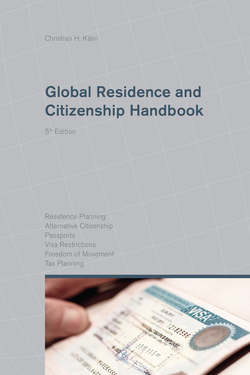Читать книгу Global Residence and Citizenship Handbook - Christian H. Kälin - Страница 23
На сайте Литреса книга снята с продажи.
Taxation based on citizenship
ОглавлениеThere is one important exception to the rule of taxation based on residence. Citizens and long term permanent residents (Green Card holders) of the US pay taxes there regardless of their place of residence, i.e. even if they move their residence outside the US. Therefore, the mere emigration of US citizens does not terminate their US tax liability. The only way for US citizens and long-term permanent residents to terminate their unlimited US tax liability is to relinquish their citizenship, i.e. to expatriate, or to give up their Green Card. The relinquishment of US citizenship or a Green Card usually trigger special taxes, and specialist US tax advice is required to ensure full compliance with the relatively complex rules applying to expatriating from the US.4
There are only a few other countries which have similar tax provisions. In the Netherlands, for example, inheritance tax applies for 10 years after leaving the country as long as one remains a Dutch citizen, and only the relinquishment of Dutch citizenship would end the extended inheritance tax liability before this 10 year period.
In early 2012, during the French presidential elections, Nicholas Sarkozy introduced proposals to base French tax laws on citizenship, in addition to a citizen’s place of residence. Hence French citizens living abroad who pay less tax than they would do in France would have to pay the difference to the French government, or else give up French nationality. Since Sarkozy did not retain power, these proposals may have lost their immediacy, but it is unlikely that they will be forgotten. In the light of the global economic downturn, many governments will see this as a potential way to raise additional funds. This threat has already caused some French citizens to review their citizenship situation, and will continue to influence decisions before any such laws are passed.
